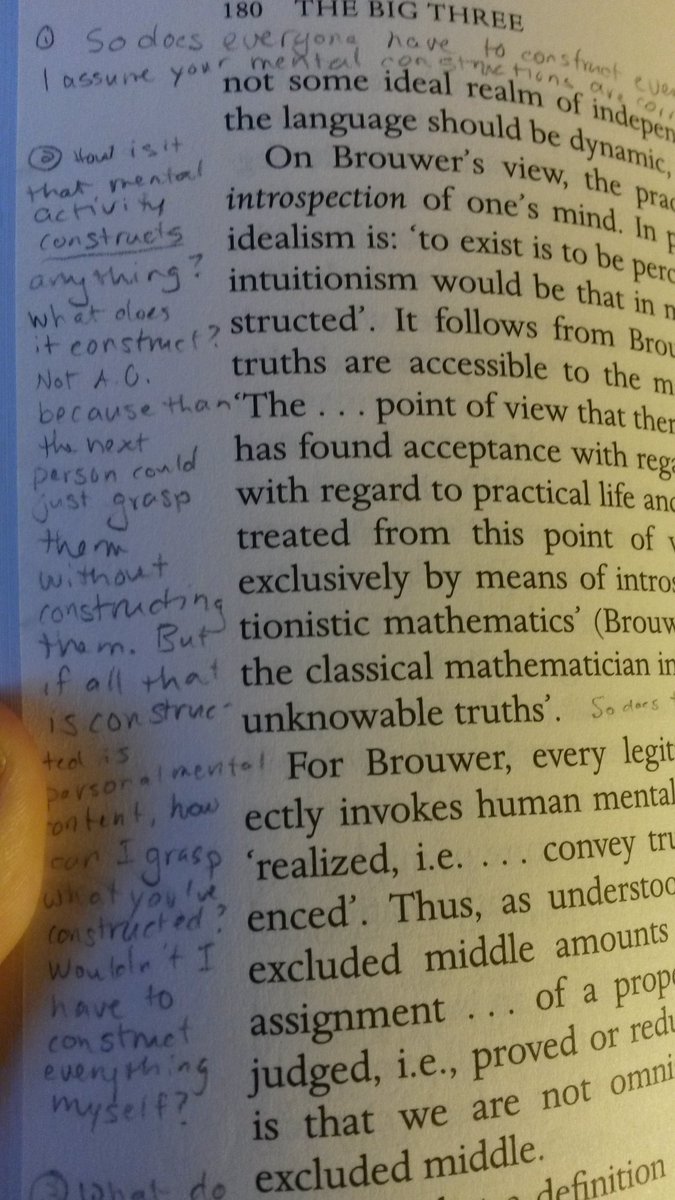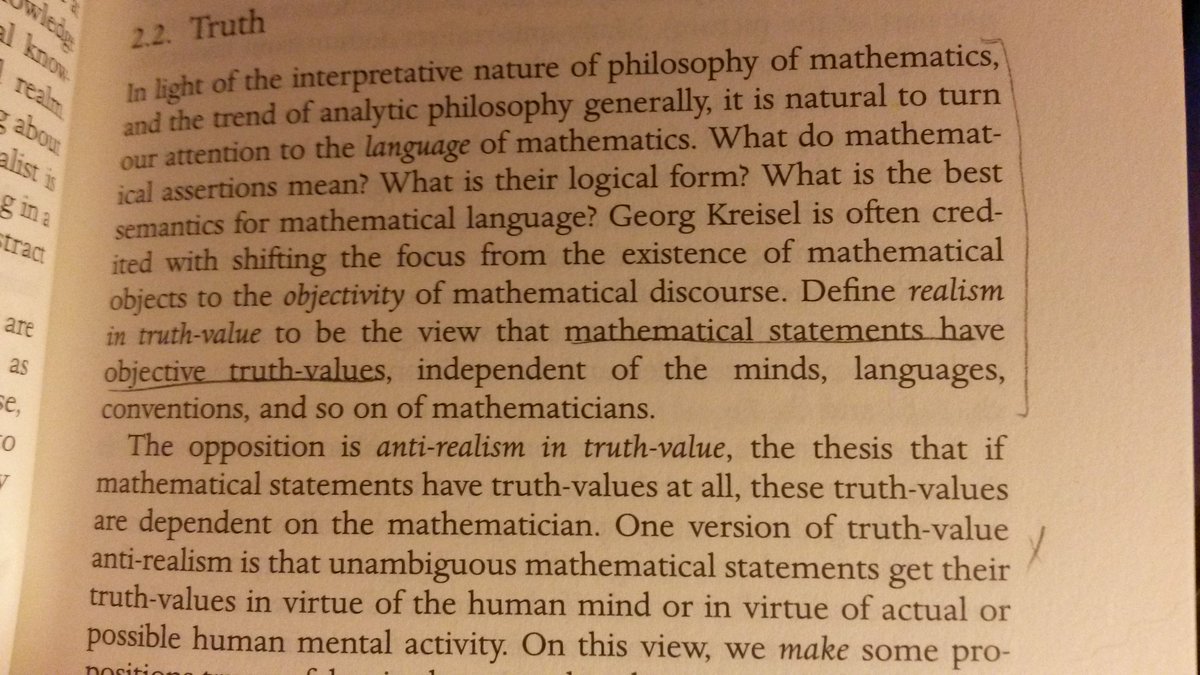teaching vignettes
Feb. 16th, 2017 02:47 pmToday my advanced seminar switched gears from the formal logic we've been doing since October to philosophy of math. I still want the presentations to be student-given, but it's very different covering a chapter of philosophy, including motivating discussion, than it is covering a bunch of technical definitions, lemmas, proofs, etc., so I wasn't sure how things were going to go.
I couldn't have been happier. The student who volunteered for this week smashed the presentation and was very good at guiding and directing discussion, and pretty much everyone in the room was willing to talk -- and more importantly, to talk to each other rather than to me. I tried to stay in the background as much as possible, because as soon as The Teacher speaks, especially to ask a question, then the discussion suddenly becomes Students Answering the Teacher's Question, rather than a philosophical discussion.
Today was an overview of issues in philosophy of mathematics, which boil down basically to: What is the ontology of mathematics? and What is the epistemology of mathematics? I.e., what are mathematical objects, and how do we know things about them?
A lot of people already have some strong leanings towards various positions, either from their own mathematical practices, or from other metaphysical or epistemology leanings they have independently from math, and it was fun seeing them beginning to articulate these leanings to each other. At one point, one student boldly proclaimed that "THIS is what philosophy is for"---not those 'soft' questions in ethics about utilitarianism vs. consequentialism, etc. (I LOVE that "determining the real nature of mathematical objects and how mathematics relates to the world" is what they think is the most important goal/pursuit of philosophy. I guess I shouldn't be surprised; they're all taking this class!).
Another brought up the very good question of what the difference is between dragons and numbers, on an anti-realist position. One person had an answer: "Practicality. We use numbers and dragons differently".
Someone else advanced the rather bold claim that not only do we apply numbers to the real world because they work, but also the converse -- numbers work because we use them.
I am really looking forward to the coming weeks' discussions.
I couldn't have been happier. The student who volunteered for this week smashed the presentation and was very good at guiding and directing discussion, and pretty much everyone in the room was willing to talk -- and more importantly, to talk to each other rather than to me. I tried to stay in the background as much as possible, because as soon as The Teacher speaks, especially to ask a question, then the discussion suddenly becomes Students Answering the Teacher's Question, rather than a philosophical discussion.
Today was an overview of issues in philosophy of mathematics, which boil down basically to: What is the ontology of mathematics? and What is the epistemology of mathematics? I.e., what are mathematical objects, and how do we know things about them?
A lot of people already have some strong leanings towards various positions, either from their own mathematical practices, or from other metaphysical or epistemology leanings they have independently from math, and it was fun seeing them beginning to articulate these leanings to each other. At one point, one student boldly proclaimed that "THIS is what philosophy is for"---not those 'soft' questions in ethics about utilitarianism vs. consequentialism, etc. (I LOVE that "determining the real nature of mathematical objects and how mathematics relates to the world" is what they think is the most important goal/pursuit of philosophy. I guess I shouldn't be surprised; they're all taking this class!).
Another brought up the very good question of what the difference is between dragons and numbers, on an anti-realist position. One person had an answer: "Practicality. We use numbers and dragons differently".
Someone else advanced the rather bold claim that not only do we apply numbers to the real world because they work, but also the converse -- numbers work because we use them.
I am really looking forward to the coming weeks' discussions.






